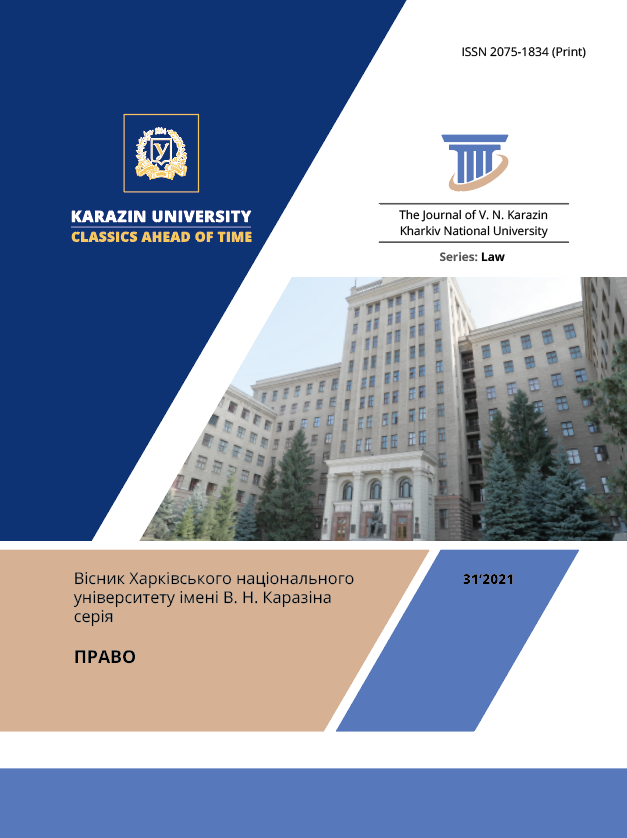LEGAL CONSTRUCTION OF PERMITTING PROCEDURE FOR ALIENATION OF AGRICULTURAL LAND PLOTS
Abstract
ANNOTATION: Introduction. The article is devoted to the issues of legal provision of land to the most efficient owners in Ukraine during the new stage of land relations reform.
According to the theory of the social function of ownership, private ownership of land is characterized as social law. The social function of property is based on a combination of individual and social interests, and the harmonization of the latter should be seen as the goal of any agrarian reform. Therefore, various restrictions on the scope of powers of the landowner are allowed.
The possibility of public-law restriction of the right of free disposal of land enshrined in the Constitution of Ukraine is associated with the danger that someday due to excessive restrictions the right of private ownership of land may become exhausted, which, in turn, may lead to suppression of free initiative land turnover. Establishing the possibility of legislative restriction of the right of private ownership of land, the Constitution of Ukraine imposes on the state the obligation to fairly regulate the process of interference in the relations of private ownership of land. Based on the above, the study of the balance of private and public interests in the opening of the market of agricultural land has significant scientific relevance.
Summary of the main research results. For analysis, the concepts of "public necessity", "common good", "public interest" are used. The concept of the permitting procedure for the alienation of agricultural land is structured.
As a model, the experience of Germany is cited, which highlights the provision that land use should simultaneously serve the common good. The alienation of agricultural land is under administrative control. The conclusion of an agreement and a contract relating to this alienation, which creates the relevant binding rights, requires the permission of the state. Permits are issued by executive bodies authorized by the state. The law introduces the preemptive right to purchase agricultural land by those who live and work on the land. This institution of preferential acquisition of agricultural land contributes to the consolidation of agricultural enterprises.
Conclusions. It is noted about the possibility of applying in Ukraine such an institution of land law as the permitting procedure for the alienation of agricultural land. This will maintain the balance of private and public interests in the land market, and their harmonization should be seen as the goal of any agrarian reform.
Downloads
References
2. Bystrov G.E. International Conference on Agricultural Legislation in the USSR and Eastern Europe in Market Conditions // Sov. state and law. - 1991. - No. 10. - P. 40.
3. Kuznetsov A.V. Legal regulation of the sale and purchase of agricultural land in Germany: Dis. Cand. jurid. sciences. - M. 1997 .- 222 p.
4. Basic Law of the Federal Republic of Germany of May 23, 1949 // Federal Republic of Germany. Constitution and legislative acts. - M .: Progress, 1991 .- 472 p.
5. Pavlova E.I. State regulation of agriculture in France (organizational and legal aspects). - M: Nauka, 1998 .-- 174 p.
6. Peichev K.P. The right to regulate the administration of land parcels: Monograph. - X .: KhNU imeni V.N. Karazina, 2007.124.
Copyright (c) 2021 Konstantin Peychev

This work is licensed under a Creative Commons Attribution 4.0 International License.




